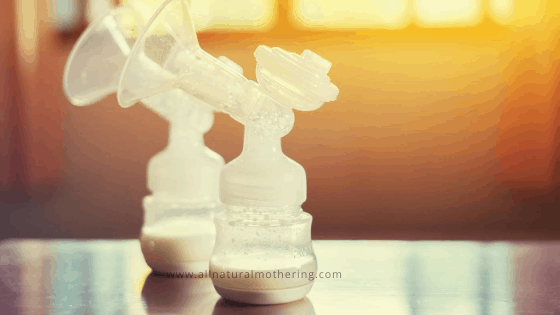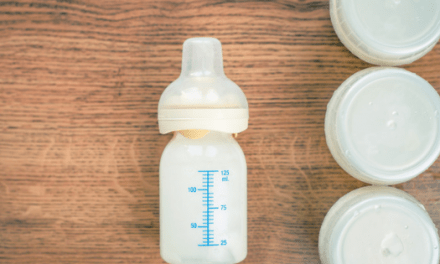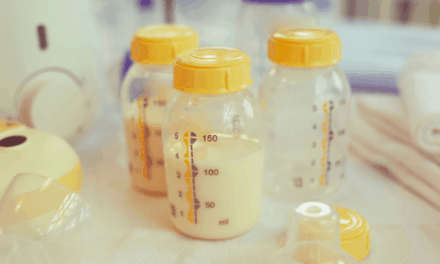The best food that you can give your baby is breast milk. As per WHO guidelines, a baby should be exclusively breastfed until six months of age. After that, you should continue breastfeeding until the baby is two years of age. Such is the importance of breast milk that mothers try their level best to feed this “liquid gold” to the baby.
But breastfeeding is also a matter of concern for new moms. Am I producing enough milk? Is my baby feeling full after every feed? These are but a few of the concerns that moms have.
6 Only True Signs of Low Milk Supply
If you are confused about nursing your baby and you are not sure whether you are doing it right, then this complete ultimate breastfeeding course will clear all your doubts. If you are pumping and struggling with supply issues, this pumping course will guide you in the right direction.
Best part is that these courses are only 19$! Yes! and they are worth their weight in liquid gold.
Here are a few ways to check whether your baby is feeding enough
- Watch the sucking pattern.
The first thing that you should consider is the sucking pattern of the baby. The baby will initially suck fast to express the milk. Once the milk starts flowing, then the sucking becomes long and deep. You should be able to hear the sound of the baby swallowing the milk and even spot milk in the baby’s mouth.
But if the baby starts crying after the initial fast sucking, then it is an indication that the baby is not getting enough milk.
Sometimes the baby will cry after feeding for some time. This crying can be due to wet diaper or sleepiness and is less likely to be caused by hunger.
-
Not gaining weight
A healthy baby should follow a predictable weight gaining pattern. A newborn baby loses around 5% – 7% of their birth weight during the initial few days after the birth. This is the extra fluid leaving the baby’s body. After that, the baby slowly starts gaining weight. Typically, the baby should regain birth weight within two weeks. If this does not happen, then you should consult a doctor.
Until six months of age from birth, the baby should gain 5 to 7 ounces a week. This is the time when the baby is exclusively breastfed. If the baby is gaining the right amount of weight, it is an indication that the baby is getting enough breast milk. On the contrary, if the weight gain is not up to the mark, you might have issues with milk supply.
A periodic check-up with the pediatrician helps you to figure out the exact weight gain of the baby.
-
Not enough wet diapers
Another way to figure out whether the baby is getting enough milk is to count the number of wet diapers. In the initial days, when your breastmilk is not steady, and the baby is yet to suck the milk properly, the number of diapers can be less. But once the baby is around one week, you should be changing at least six to eight diapers a day. Similarly, the baby should pass the poop at least twice a day.
If you are using a cloth napkin, then the napkin should get wet after every feed, or the most after two feeds. If it’s not the case, then the baby is not getting enough milk.
-
Poop color does not change.
A newborn baby’s poop is black in color. This discharge is called meconium. Meconium contains cells, bile, and amniotic fluid that entered the baby’s body while in the womb. The baby will continue passing black poop for the first one week. After that, the color should change to yellow.
A baby who is exclusively breastfed should have dark yellow poops with small flecks in it. The flecks come from the breast milk the baby is feeding. The poop will not be smelly as the baby is taking in only breastmilk.
If the color does not change to yellow even after a week, it is an indication that the baby is not getting enough breastmilk.
-
Baby’s reaction
The baby’s facial expression and the way he reacts also indicates whether the baby had enough milk. Once the baby gets enough milk, he will release the breast spontaneously after the feed. The baby will feel drowsy or sleepy and move the hands and legs slowly. This shows that the baby is contended and had enough.
-
Looking dehydrated
If the baby looks dehydrated, it is a sign that the baby is not getting enough milk. Signs of dehydration are dryness in the mouth, dark urine, irritability, and crying without tears. If the baby has sunken eyes, it is also an indication that the baby is dehydrated.
If you feel that the baby is dehydrated, then you should consult the doctor without delay.
What are the Signs of a False Milk Supply Issue?
-
Constant feeding
Breastmilk is very easily digested. Babies who are on breast milk should be fed once every 2 – 3 hours. The general belief is that if the baby starts crying within one hour of feeding, then the baby has not received enough milk.
This may not be true. If the baby is not receiving enough milk, the baby shows symptoms of inadequate nourishment. Sometimes the baby demands constant feed if he/she is not well. Similarly, a baby might demand a feed for comfort and warmth. Thus, constant feeding cannot be taken as a sign of inadequate milk supply.
-
Sudden change in baby’s feeding habit
If a baby who has been feeding at a normal pace suddenly demands extra feed, it cannot be considered as a sign of low milk supply. Sometimes, if the baby is hitting a growth milestone, then he might require additional milk for nourishment. This does not mean that your milk supply is less.
Similarly, if the baby has started eating solid food, then also the demand for breast milk decreases.
- Breasts don’t feel full.
The general notion is that, if you have a good milk supply, you will feel fullness in the breast. The breast will be heavy with milk.
But this need not be the case always. If the baby empties the breast completely at regular intervals, your breast may not be full. This does not mean that your milk supply is low.
-
Baby sucking the thumb
Babies suck their thumb for several reasons. Thumb sucking is a way to soothe and calm themselves. Some babies while feeling sleepy tend to suck their thumbs.
Sucking the thumb does not imply that the baby is hungry. And it has nothing to do with low milk supply.
-
Baby is crying even after fed
Babies cry for several reasons. If the baby cries constantly after a feed, it could be because of some underlying health condition. Most of the babies suck in a lot of gas while feeding. This can result in colic leading to fussiness and crying. Thus, crying after a feed need not be due to low milk supply.
-
Baby is not feeding properly.
If the baby does not latch or suck milk properly, then low milk supply is considered as an issue. Sometimes changing the position can help baby latch properly and take in more milk. If you are a first time mother, then feeding the baby may not come naturally to you. You can visit a lactation consultant and clear your doubts about improper feeding.
-
Breasts don’t leak
Leaking of the breast is a normal part of the breastfeeding process. It is caused as a result of the letdown reflex. If you have a good milk supply and you do not feed the baby at the right time, then the breast tends to leak. Sometimes, it can also happen unexpectedly.
But a non-leaking breast does not mean that you have a low milk supply. Some mothers leak less than others. It all depends on the mother’s body.
What are the Reasons for a Low Milk Supply?
-
No proper feeding
Sometimes, the baby may not get the right latch at the breast. If the baby is suffering from medical conditions like cleft lip, and tongue tie then the baby will find it difficult to feed. If the baby does not feed properly, the body gets adjusted accordingly, and the milk supply becomes low.
Similarly, if the baby does not get enough time to feed, then also the milk supply declines gradually.
-
Not following a proper diet.
A breastfeeding mother requires extra calories of 500-600 per day. If you have put on a lot of weight during pregnancy, then the extra calorie will be used while feeding. But if you have lost all the baby weight, you should eat extra to meet the growing requirements of your body. If you do not follow a balanced diet with the required calorie, your milk supply can be affected.
A breastfeeding mother should eat protein 2-3 times per day and include whole grains in the diet. You should also have 2-3 servings of fruits and vegetables to get the required vitamins for the body. Also, remember to drink plenty of water to make up for the fluid loss from the body.
-
Supplementing the baby with formula
Formula milk is heavy and more filling than breastmilk. Once you start feeding the baby formula milk, the baby will not feel hungry for long. Thus, if you try to breastfeed the baby, he may not feed as much as before.
Moreover, the taste of the formula milk is different from breastmilk. Once the baby gets used to the taste of formula feed, the baby might be reluctant to feed on breast milk. Unless the baby feeds properly, you may not have enough breast milk supply.
-
Medication
Certain medications like oral contraceptives and steroids can affect the overall milk supply. Thus, if you are starting any new medication, then you should inform the doctor beforehand. The doctor can then prescribe medication that does not affect milk supply.
Breast milk is the purest form of food that mothers can give to their babies. Until and unless you feed the baby wholeheartedly, you may not get the desired result. Thus, taking care of your physical and mental well-being is key to successful breastfeeding.












